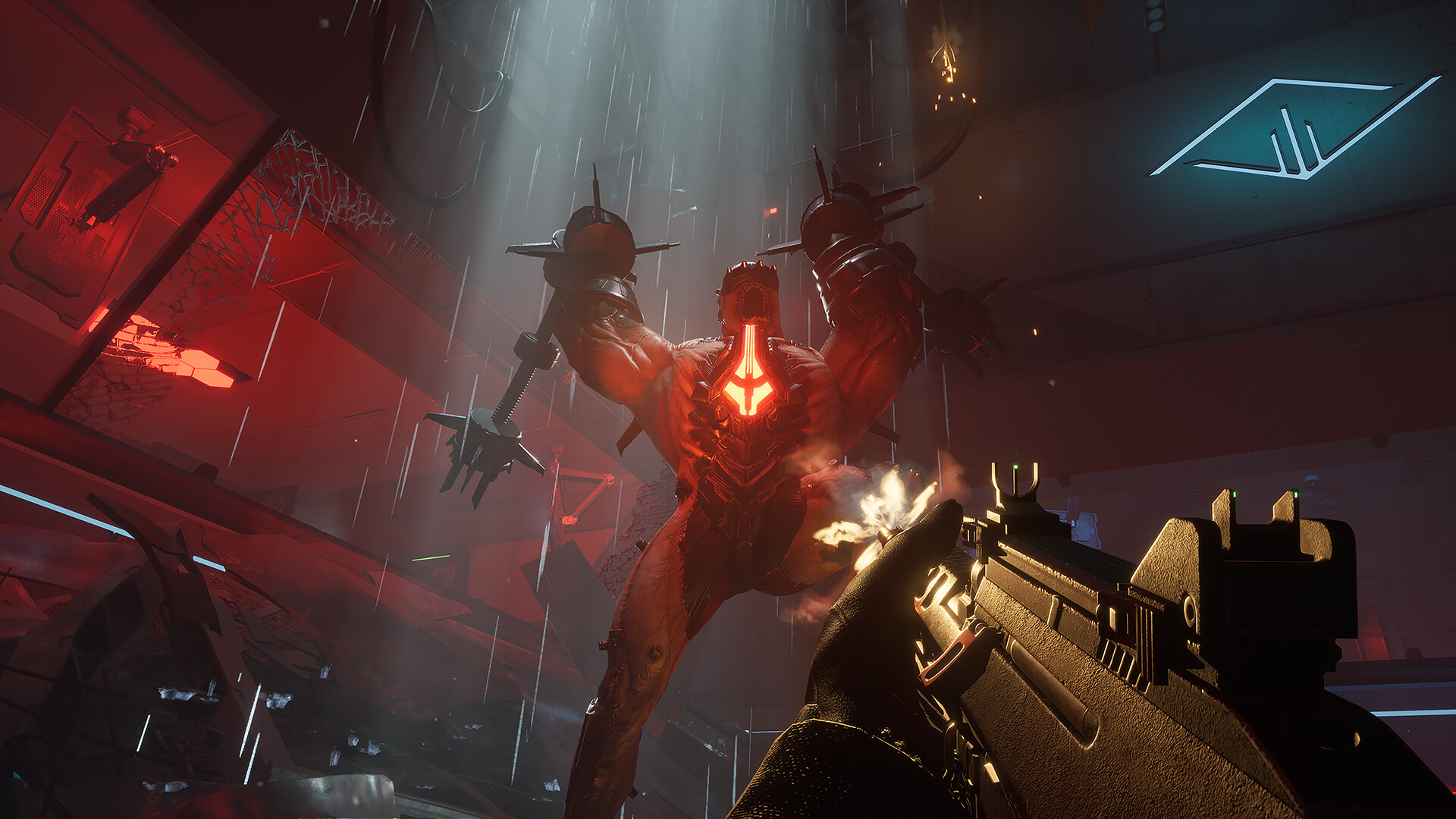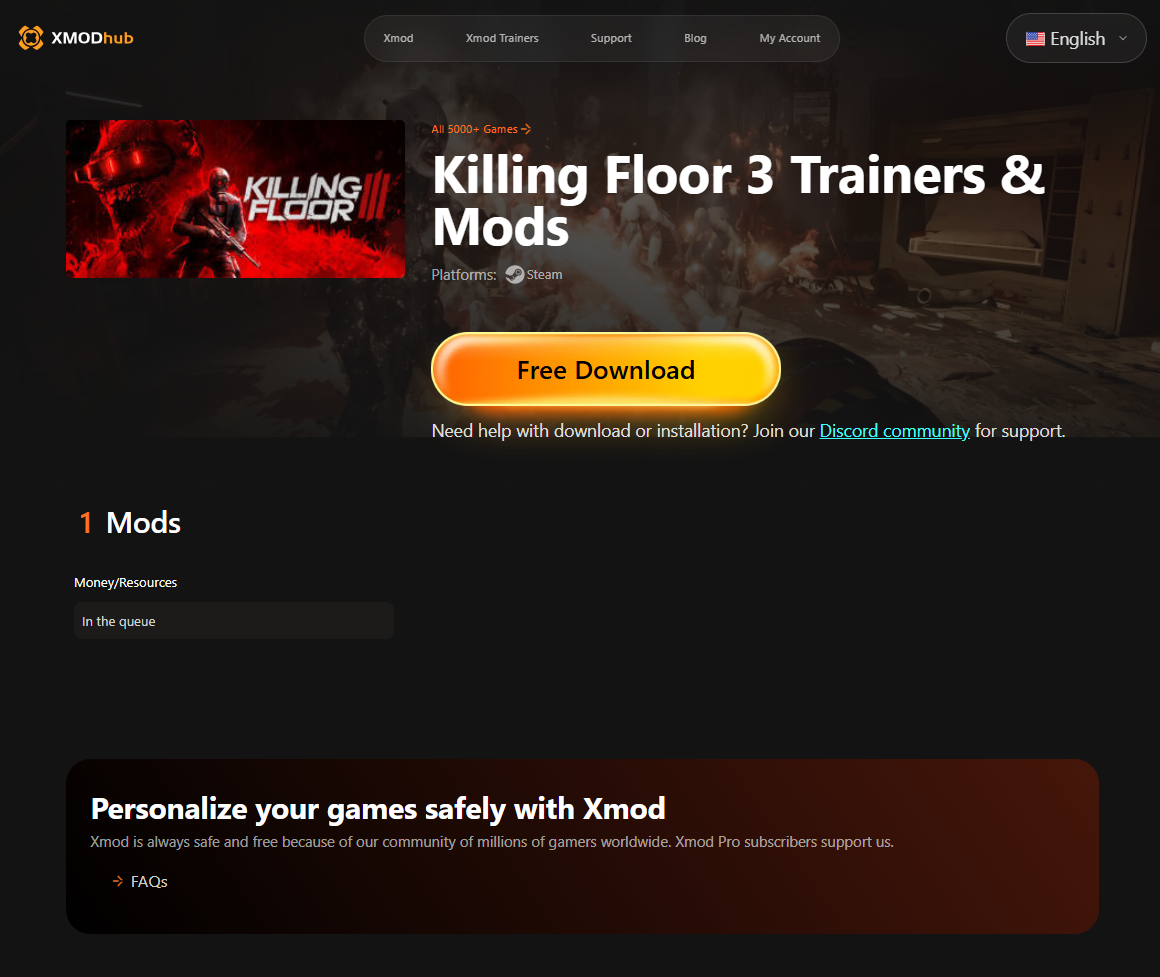Summary: Check out the official PC requirements for Killing Floor 3, see if your system can handle the action, and discover how Xmod can boost your gameplay.
Killing Floor 3 is the highly anticipated next chapter in the intense co-op FPS series known for its brutal combat, terrifying Zeds, and adrenaline-pumping survival gameplay. With improved visuals, smarter enemies, and deeper customization, this installment pushes the boundaries of what your PC needs to deliver a smooth experience.
In this guide, we’ll cover the minimum and recommended system specs, explore whether low-end PCs can run Killing Floor 3, and introduce Xmod as a powerful tool to enhance your gameplay even further.
Table of Contents
- What Is Killing Floor 3
- Killing Floor 3 Requirements: Minimum and Recommended
- Can You Run Killing Floor 3 on a Low-End PC?
- Can My PC Run Killing Floor 3
- How to Enhance Killing Floor 3 Gaming Experience with Xmod?
- Conclusion
What Is Killing Floor 3?
Killing Floor 3 is the latest entry in the high-intensity, co-op wave-based FPS series developed by Tripwire Interactive. Set in a dystopian future where biotech horrors run rampant, players join an elite task force to wipe out genetically engineered enemies known as Zeds. With brutal gunplay, deep class systems, and a heavy emphasis on co-op tactics, the game raises the stakes with advanced enemy AI, new progression mechanics, and stunning visuals powered by Unreal Engine 5.
Killing Floor 3 Requirements: Minimum and Recommended
To enjoy Killing Floor 3 as it was intended, you’ll need to meet certain hardware requirements. The game leverages modern graphical effects, physics simulations, and real-time lighting, which can be demanding on older machines.
Minimum System Requirements
| Component |
Requirement |
| OS |
Windows 10 (64-bit) |
| Processor |
Intel Core i5-2500K / AMD FX-8350 |
| Memory (RAM) |
8 GB |
| Graphics Card |
NVIDIA GTX 1050 Ti / AMD RX 560 |
| Storage |
50 GB available space |
| DirectX |
Version 12 |
Recommended System Requirements
| Component |
Requirement |
| OS |
Windows 10 / 11 (64-bit) |
| Processor |
Intel Core i7-8700 / AMD Ryzen 5 3600 |
| Memory (RAM) |
16 GB |
| Graphics Card |
NVIDIA RTX 2060 / AMD RX 6700 XT |
| Storage |
SSD with 50 GB available space |
| DirectX |
Version 12 |
Can You Run Killing Floor 3 on a Low-End PC?
It’s possible, but you’ll need to make significant adjustments. Players with older GPUs or CPUs may experience stuttering, long load times, or performance drops during large Zed waves.
Optimization Tips:
- Set resolution to 720p or use dynamic scaling
- Disable shadows, motion blur, and ambient occlusion
- Lower FOV and particle effects
- Cap frame rate at 30 FPS to reduce CPU load
- Close background apps while playing
Using these tweaks, some players with GTX 750 Ti or even integrated Vega 8 graphics have reported acceptable performance during solo matches.
Can My PC Run Killing Floor 3?
If you’re unsure, here’s how to check:
- Visit Can You Run It.
- Search for “Killing Floor 3“.
- Let the tool compare your specs to the game’s requirements.
- Or manually compare your GPU/CPU with those in games like Back 4 Blood or Left 4 Dead 2 Enhanced, which are similar in engine scale and gameplay loop.

How to Enhance Killing Floor 3 Gaming Experience with Xmod
Xmod is a powerful utility for enhancing single-player and private-session gameplay. It allows you to fine-tune performance, backup saves, remap controls, and experiment with visual mods — all without touching system files directly.
Here’s how to set up Xmod to optimize Killing Floor 3 for the best possible experience:
1: Download and Install Xmod
- Go to the official Xmod website.
- Download the latest Windows version
- Run the installer and follow on-screen prompts to complete setup
2: Launch Xmod and Detect the Game
- Open Xmod
- It will auto-scan for installed games — if Killing Floor 3 appears, select it
- If not detected, manually locate the game’s installation folder and select the
.exe file
3: Boost Game Performance
- Enable Game Boost Mode to prioritize CPU and RAM usage
- Turn on Low-Latency Mode for reduced input delay and smoother aiming
- Use VRAM Optimizer to manage texture loading on lower-end GPUs
4: Fine-Tune Graphics (Optional)
- Open the Visual Enhancements tab
- Adjust shader complexity, lighting quality, and ambient effects
- Activate Dynamic Resolution Scaling to maintain stable frame rates during intense Zed waves
5: Use the Save Manager
- Create quick manual save points before major waves or perk resets
- Roll back to earlier saves if you want to test loadouts or retry sections
- Schedule automatic backups every hour or at mission checkpoints
6: Customize Your Controls and Macros
- Remap keyboard/mouse or gamepad controls easily
- Use macros to automate complex inputs like quick reload + med-shot combos
- Set up toggle keys for flashlight, voice lines, or inventory cycling
7: Keep Xmod Updated
- Check for plugin updates to ensure compatibility with the latest Killing Floor 3 patches
- Enable auto-update to get performance and feature improvements as they’re released
Conclusion
Killing Floor 3 pushes the co-op FPS genre forward with high-impact gunplay, tactical team mechanics, and grotesque enemy design. Whether you’re running a high-end gaming rig or a budget PC, understanding system requirements and optimizing settings is key to survival.
Tools like Xmod help elevate the experience even further — boosting frame rates, enhancing visuals, and giving players full control over performance and save data. No matter your hardware, there’s a way to enjoy Killing Floor 3 at its best.


